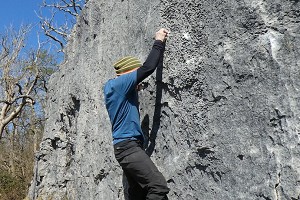
If a non-climber asks me why I go climbing, I'm usually taken unawares and stammer out some vague explanations about the physical and mental challenge, being outside, the company, got into it unexpectedly and got hooked for life.....yet when I hear myself blabber on, it all sounds a bit clichéd. So what IS my underlying motivation? Why do YOU climb? Could the following help?
I've always been a sucker for neat theories and models of human behaviour even if I know they don't offer a perfect fit when you apply them to your own experience. They can still be fun though, especially when they make you stop and think "That's me, that is" or "I certainly know one of THEM". I've been musing about the part motivation plays in climbing, and I've borrowed a theory (from David McLelland) to see how it plays out.
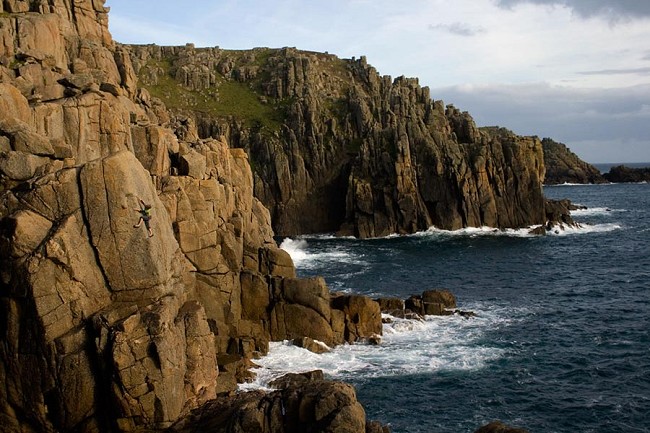
Who's a little Praxis then?
Praxis climbers are driven by Performance. They really want to succeed, they thrive on getting better, they like to climb or train alone, or with other triers or high achievers, and although they might not admit it, they like positive feedback. Praxis climbers don't like low-risk challenges too much because they're not really genuine achievements, but surprisingly don't want too high a risk of failure either, because getting lucky on a project isn't the same as succeeding through their own hard-won competence. Their risk-taking is well calculated. Praxis climbers are often great technicians - they know lots of stuff about gear, sequences of moves, training tactics for specific routes, and the like. They are very handy to have around if you need one - "You've only threaded one of your harness loops", "You've Z-clipped", "Use the undercut then smear quickly till you can reach the jug", and they can certainly build a bombproof hanging belay and can remember how to escape the system and give an assisted hoist.
Praxis climbers are about doing it well and doing it right. You can read it in their UKC forum posts, arguing the toss about equipment, knots, training, clothing, styles of ascent, suitable racks, self-rescue and so on. They can be more of an expert than a friend, and are competitive, sometimes only with themselves, and can be impatient or insensitive with climbing partners who don't share their drive for improvement. Praxis climbers are in the game to achieve. If you lend your rope to a Praxis, they'll examine it carefully and ask you how many falls it has taken. In the case of a climbing accident, they will quickly analyse what happened and get on with working out how to deal with it.
Some of my best friends are Praxis.
OK, Protos, I saw you.
Protos climbers are motivated by Power. Not campus board power, but power over others and over situations. Protos needs people around who can be impressed and influenced. They are not shy about giving advice and help to others, they like a good argument and they are pretty good at it. Protos climbers are happy to accept low risk or high risk challenges, because they can easily justify either, and will take on anyone who criticises them. They are proud of their climbing record, justifiably or not. They can be strong and bold climbers, because they are, or behave as, very confident people. They are happy to climb with beginners too. They can be fun to be with, because their social energy can be infectious. If their power drive is purely for personal ego at the expense of others, they can be unpopular, but sometimes their power need is aimed at the climbing, or the trip, and they can be great to be with as they may push you harder than you thought you could be pushed.
Protos climbers who can be bothered posting on UKC forums enjoy stirring other people up, arguing about anything from dry-tooling on summer rock to international politics. You can't ignore a Protos, they are in the game to be noticed. Like the Protos who told me they'd never seen anyone make that route look so difficult. Or another, who couldn't tell me the grade of the route he'd just done, it just looked a nice line. If you lend your rope to a Protos, they'll think that it's only right that you do. In the case of a climbing accident, they will tell everyone what to do and organise them to do it.
Some of my best friends are Protos.
Come on down, Patria.
Patria climbers are motivated by People, by their climbing partners and peer groups. Patria enjoys being part of a group, even a small group, because it's the camaraderie, the craique, the social buzz they get from climbing that dominates their motivation. They want to be liked, and usually are, by others, and they are happy to help other people succeed in their own climbing goals. They will go along with group decisions happily, provide physical and moral support as leaders, seconds, spotters, chauffeurs, and get their buzz from belonging. Patria climbers are real team players, they are open and supportive, they are sensitive to how others are climbing, give loads of positive feedback and are relatively non-competitive unless being so is part of the group ethic. They are sensitive to criticism, and don't like to be left out.
Patrias think nothing of spending time responding to UKC forum posts asking for advice on destinations or starting out, and will try to reunite climbers with lost gear. In the case of a climbing accident, they will focus on the casualty, reassuring them and keeping their spirits up. If you lend your rope to a Patria, its because they've already lent theirs to someone else.
Some of my very best friends are Patrias.
McClelland's classifications don't cover everything in my climbing experience though, and I'm moved to add a fourth.
What a Prat!
Prats do not know they are Prats. They seem motivated only by being Prats. They are invariably loud, opinionated and wrong. They show off what abilities they may have, but they mainly show off their Pratness. They drop names of famous hard climbs, climbing destinations, grades and climbers within your earshot. They tell you where you are going wrong when you don't know them. They climb your route immediately after you've fought your way up and say it was pretty straightforward. They tell their partner in a loud voice how you should be tackling that move. They set off on single pitch classic severes with twin ropes, two sets of nuts, micro nuts, full sets of cams, 20 slings, jumars, and a portable belay ledge which just happened to be on their rack from their last trip to Baffin Island.
They set up top-ropes for the day then leave their litter at the crag. They carry ropes on top of rucksacks and leave them on the back shelf of the car. They sign on to forums so that they can willy-wave and abuse people. They have opinions on top climbers and the hardest routes without having been near any of them. They mock beginners, bumblies and the Geriarty. They are like the Prat guide who dragged his two clients up through our ropes in the Dolomites then kicked a boulder down from above us. Or the Prat whose endless effing and blinding in English echoed around the narrow bit of Paklenica Gorge above coachloads of tourists.
And the Prat who pointed up at me at Almscliffe and said to the ten-year-old beside him "If that old fat guy can get up it, you'll have no worries son". If you lend your rope to a Prat, you are heading towards being a Prat. They will stand on it, get it dirty, drop it in the sea, run it over sharp edges and forget to give it back. In the case of a climbing accident, they will faff about and tell the press what really happened and why, and they'll pick up any abandoned gear and shove it in their sack. I've never met a female Prat.
None of my best friends are Prats.
OK, I admit to describing extremes of the stereotypes here, and it has nothing to do with how well you climb. We each have a bit of all three in us, but it's more likely that one of the drives is dominant. This might change with age or circumstance - I've definitely become more of a Patria as I get older, having started out motivated by performance, and when that didn't work out, by power, and when that didn't work either, I've become a jolly old bumbling Patria. I'm well and truly in it for the good company and the banter that goes with it, yet I can't quite stop getting motivated by trying to climb better.
And although no-one wants to own up to being a Prat, here's a cliché to end on - each of us is a Prat in someone else's eyes.
- ARTICLE: Feeding the Book Rat 16 Jun, 2020
- The New British Climbing Dictionary 26 Dec, 2010
- Proud to be a Bumbly 21 Mar, 2008

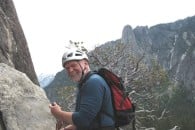

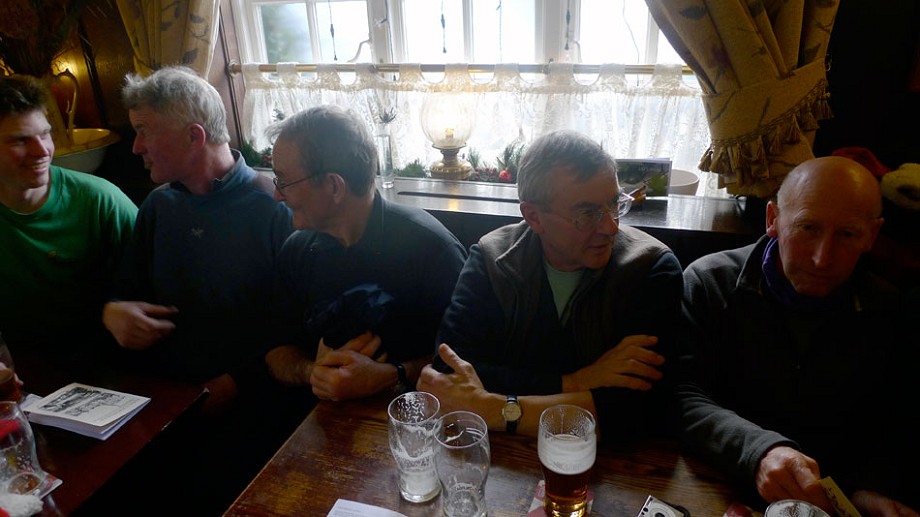
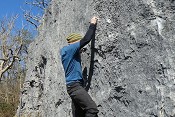

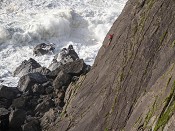
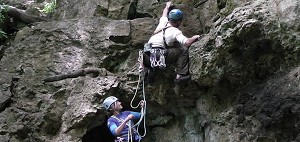









Comments